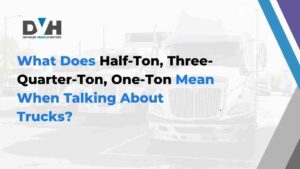If you’re in the market for American used cars for export, you’re likely aware of the potential savings and opportunities that come with it. The USA has a vast market for both new and used vehicles, offering a wide variety of makes and models. Whether you’re a dealer looking to expand your inventory or an individual seeking a good deal on a car, the option of exporting used cars from the USA can be quite enticing. However, it’s essential to tread cautiously, especially when considering salvage cars. In this guide, we’ll explore how to export salvage cars from USA and emphasize the importance of checking the vehicle’s history before making any purchase.
The Allure of American Used Cars for Export
The United States is known for its vibrant automotive market, with an extensive range of vehicles available for buyers. This diversity is a major draw for individuals and businesses looking to export cars from the USA. Here are some key reasons why American used cars are in high demand for export:
- Variety of Makes and Models: The USA offers an incredible selection of vehicles, from popular domestic brands like Ford, Chevrolet, and Chrysler to a wide range of imported cars from around the world.
- Competitive Pricing: Due to factors like depreciation and market dynamics, used cars in the USA can often be more competitively priced than their counterparts in other countries.
- Quality and Condition: American vehicles are generally well-maintained, with many used cars in excellent condition thanks to regular servicing and rigorous inspection standards.
- Advanced Technology: The USA is known for being at the forefront of automotive technology, meaning you can often find modern and technologically advanced vehicles in the used car market.
- Potential for Profit: For dealers and entrepreneurs, the export of American used cars can be a lucrative business, with the opportunity to buy low and sell high in international markets.
The Role of Car History Report
When it comes to assessing the suitability of a salvage car for export, a car history report is your best friend. These reports provide a comprehensive overview of a vehicle’s past, including:
- Accident History: Details about accidents, including the severity of damage and whether the vehicle was declared a total loss.
- Title History: Information about title changes, including salvage titles and rebuilt titles.
- Mileage Records: Odometer readings to help verify the car’s mileage.
- Ownership History: A record of previous owners and how the car was used (e.g., personal, rental, fleet).
- Service and Maintenance Records: Information about routine maintenance and repairs.
- Recalls: Any manufacturer recalls that may affect the vehicle.
- Lien and Loan Records: If there are any outstanding loans or liens on the vehicle.
Exporting a used vehicle from the USA? Run a VIN check now!
Why Does a Car History Report Matter?
Obtaining a car history report is important for the following reasons:
- Transparency: A vehicle history report provides a transparent view of a car’s past, helping you make an informed decision.
- Safety: It ensures that the car has been properly repaired and meets safety standards.
- Value Assessment: You can gauge the vehicle’s true value and potential resale value.
- Legal Compliance: It helps ensure you comply with import regulations in your destination country, which may require specific vehicle documentation.
Car Auctions USA for Export
Car auctions are a popular way to source used cars for export from the USA. These auctions provide access to a wide range of vehicles, including salvage cars. Here’s how the process typically works:
- Registration: To participate in a car auction, you’ll need to register as a bidder. This often involves providing some personal information and agreeing to the auction’s terms and conditions.
- Inspection: Many car auctions allow prospective buyers to inspect the vehicles before the auction begins. This is a crucial step for assessing the condition of salvage cars.
- Bidding: Once the auction begins, you can place bids on the vehicles you’re interested in. It’s essential to set a budget and stick to it, as auctions can be competitive.
- Winning: If you have the winning bid, you’ll need to pay for the vehicle and complete the necessary paperwork. This typically includes obtaining the title and any required documentation.
- Transport: After purchasing the car, you’ll need to arrange for its transportation to your destination country. This can involve hiring a shipping company or transporter.
- Inspection and Repairs: Upon arrival in your country, the salvage car will likely need inspection and repairs to ensure it meets local safety and emissions standards.
The Importance of a Car History Report in Auctions
When participating in car auctions USA export, obtaining a vehicle history report is a crucial step before bidding on any vehicle, especially salvage cars. Here’s why it’s essential:
- Informed Bidding: A car history report helps you make an informed decision about whether a salvage car is worth bidding on. It provides insights into the extent of damage, repairs, and title history.
- Budgeting: Knowing the condition of the vehicle allows you to set a budget for repairs and any potential restoration work.
- Avoiding Hidden Issues: A vehicle history report can reveal hidden issues that may not be apparent during a visual inspection.
- Legal Compliance: Many countries require detailed documentation when importing salvage cars. A vehicle history report can be a valuable part of this documentation.
The Best Carfax Alternative for International Buyers
Carfax is a well-known vehicle history report provider in the United States, but it primarily caters to a domestic audience. However, for international buyers looking to export American used cars, a Carfax alternative is needed—one that provides comprehensive vehicle history reports accessible from anywhere in the world.
One such alternative is Detailed Vehicle History. It offers a worldwide platform for obtaining detailed vehicle history reports on American cars. Here’s why it’s a valuable choice for international buyers:
- Global Coverage: Detailed Vehicle History provides information on American used cars regardless of your location. Whether you’re in Europe, Asia, Africa, or elsewhere, you can access the reports you need.
- Comprehensive Reports: The reports offered by Detailed Vehicle History are comprehensive, providing a detailed overview of a vehicle’s history, including accidents, title changes, mileage records, auction records and photos and more.
- Easy Accessibility: You can access vehicle history reports from Detailed Vehicle History through their website or mobile app, making it convenient for international buyers on the go.
- Cost-Effective: Detailed Vehicle History offers cost-effective pricing for their reports, making it an accessible option for those looking to export American used cars.
Exporting salvage cars from the USA can be a profitable venture or a great way to save on a personal vehicle, but it’s not without its challenges. The key to a successful export lies in careful research and due diligence. Whether you’re buying from car auctions in the USA or through private sellers, always prioritize checking the vehicle’s history through a trusted provider like Detailed Vehicle History. This step ensures transparency, helps you avoid costly surprises, and ultimately makes your venture into the world of American used cars for export more securely and with rewarding experience. Remember, when it’s time for you to buy and export salvage cars from USA, knowledge is your most powerful tool.










